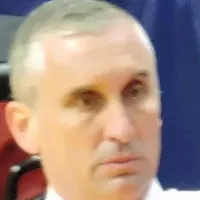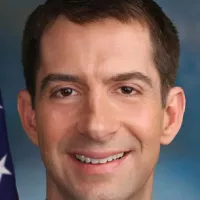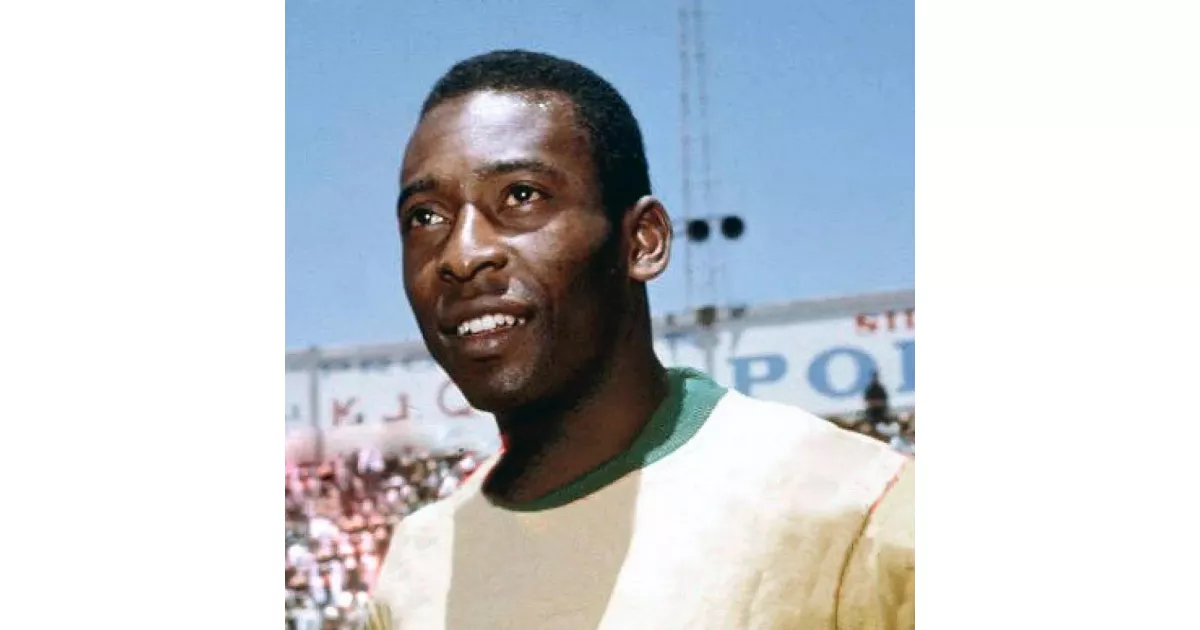Pelé, born Edson Arantes do Nascimento, was a Brazilian professional footballer celebrated as one of the greatest of all time. As a forward, he achieved remarkable success and popularity, becoming a global icon in the 20th century. He holds a Guinness World Record for scoring 1,279 goals in 1,363 games. Pelé was named Athlete of the Century by the International Olympic Committee in 1999 and included in Time's list of the 100 most important people of the 20th century. In 2000, he was voted World Player of the Century by IFFHS and was a joint winner of the FIFA Player of the Century award.
1922: Birth of Celeste Arantes
In 1922, Celeste Arantes, Pelé's mother, was born.
October 1940: Pelé's Birth
In October 1940, Edson Arantes do Nascimento, known as Pelé, was born in Três Corações, Minas Gerais, Brazil, the son of footballer Dondinho and Celeste Arantes.
June 1956: Signing with Santos FC
In June 1956, Pelé signed a professional contract with Santos FC after impressing coach Lula during a trial.
September 1956: Senior Team Debut
On September 7, 1956, at the age of 15, Pelé made his senior team debut for Santos against Corinthians de Santo André, scoring his first goal in a 7–1 victory.
1956: Beginning of Ballon d'Or award in 1956
The Ballon d'Or award started in 1956.
1957: Starting Place in First Team
In 1957, Pelé was given a starting place in the first team of Santos and, at the age of 16, became the top scorer in the league.
1958: European Clubs' Interest
After the 1958 World Cup, wealthy European clubs tried to sign Pelé, but Santos declined to let him leave. Inter Milan even managed to get him a regular contract, but Angelo Moratti was forced to tear the contract up at the request of Santos's chairman.
1958: Pelé's Emergence coincided with the spread of television in 1958
David Goldblatt wrote that Pelé's emergence at the World Cup in 1958 coincided with "the explosive spread of television, which massively amplified his presence everywhere".
1958: Wore Number 10 Jersey
During the 1958 World Cup, Pelé began wearing the number 10 jersey, which was assigned to him by FIFA due to disorganization within the Brazilian Federation.
1958: Emergence at the 1958 World Cup
Following his emergence at the 1958 World Cup he was nicknamed O Rei ("The King").
1958: Participated in FIFA World Cup
In 1958, Pelé participated in the FIFA World Cup where he gave the assist to Vavá's second goal against the USSR. He scored his first World Cup goal against Wales, becoming the youngest ever World Cup goalscorer. He also scored a hat-trick against France in the semi-final, becoming the youngest player in World Cup history to do so.
1958: Campeonato Paulista Win
In 1958, Pelé won his first major title with Santos, the Campeonato Paulista, finishing as the top scorer with 58 goals.
1958: Just Fontaine on Pelé in 1958
Just Fontaine, French striker and the leading scorer at the 1958 World Cup said "When I saw Pelé play, it made me feel I should hang up my boots."
August 1959: Most Memorable Goal
On August 2, 1959, Pelé scored what he considered his most memorable goal at the Estádio Rua Javari in a Campeonato Paulista match against Clube Atlético Juventus.
1959: Played in South American Championship
In 1959, Pelé played in the South American Championship, where he was named the best player of the tournament and became the top scorer with eight goals. Brazil finished second despite being unbeaten.
1960: Regaining Campeonato Paulista Trophy
In 1960, Pelé scored 33 goals to help Santos regain the Campeonato Paulista trophy and the club also won the Taça Brasil.
March 1961: Gol de Placa
In March 1961, Pelé scored the gol de placa against Fluminense at the Maracanã, leading to a plaque being commissioned in dedication to "the most beautiful goal in the history of the Maracanã".
1961: National Treasure Declaration
In 1961, the government of Brazil declared Pelé an "official national treasure" to prevent him from being transferred out of the country.
1962: European Clubs' Interest
After the 1962 World Cup, wealthy European clubs tried to sign Pelé in vain.
1962: Played in the 1962 World Cup
In 1962, Pelé was considered the best player in the world. In the first match of the 1962 World Cup in Chile, against Mexico, Pelé assisted the first goal and then scored the second one. He got injured in the next game and had to sit out the rest of the tournament. In 2007, he retroactively received a winner's medal.
1962: Copa Libertadores and Intercontinental Cup Wins
In 1962, Santos had a successful Copa Libertadores season, defeating Peñarol in the finals with Pelé scoring twice. Santos would also win the 1962 Intercontinental Cup against Benfica, with Pelé scoring a hat-trick in Lisbon.
1962: 1962 final
In 1962, Santos reached the semi-finals of the Copa Libertadores, meeting Peñarol in a rematch of the 1962 final.
1963: Copa Libertadores and Intercontinental Cup Wins
In 1963, Pelé led Santos to win the Copa Libertadores and the Intercontinental Cup.
1963: Retaining Copa Libertadores Title
In 1963, Santos retained the Copa Libertadores title after victories over Botafogo and Boca Juniors, with Pelé scoring key goals. Santos also won the Rio-São Paulo tournament and retained the Intercontinental Cup and the Taça Brasil.
1964: Birth of Sandra Machado in 1964
In 1964, Sandra Machado was born from an affair Pelé had with a housemaid, Anizia Machado.
1964: Campeonato Paulista and Taça Brasil Wins
In 1964, Santos won the Campeonato Paulista, with Pelé netting 34 goals. Santos also shared the Rio-São Paulo title with Botafogo and won the Taça Brasil for the fourth consecutive year.
December 1965: Taça Brasil Win
In December 1965, Santos won the Taça Brasil, their fifth straight Brazilian league title, with Pelé scoring the last goal in the final series.
1965: Copa Libertadores Semi-Finals
In 1965, Santos reached the semi-finals of the Copa Libertadores, meeting Peñarol in a rematch of the 1962 final. Peñarol eliminated Santos 2–1 after a playoff, although Pelé finished as the top scorer of the tournament with eight goals.
1966: Bobby Moore on Pelé in 1966
England's 1966 FIFA World Cup-winning captain Bobby Moore commented: "Pelé was the most complete player I've ever seen, he had everything. Two good feet. Magic in the air. Quick. Powerful. Could beat people with skill. Could outrun people. Only five feet and eight inches tall, yet he seemed a giant of an athlete on the pitch. Perfect balance and impossible vision. He was the greatest because he could do anything and everything on a football pitch.
1966: Pelé married Rosemeri dos Reis Cholbi in 1966
In 1966, Pelé married Rosemeri dos Reis Cholbi.
1966: Losing the Taça Brasil
In 1966, Santos failed to retain the Taça Brasil as Pelé's goals were not enough to prevent a defeat by Cruzeiro in the final series.
1966: Changes to the 1966 squad
In 1966, major changes were made to Brazil's squad for the tournament, due to the retirement of players like Garrincha, Nilton Santos, Valdir Pereira, Djalma Santos, and Gilmar.
January 1967: Birth of Kely Cristina in January 1967
Pelé and Rosemeri dos Reis Cholbi had their first daughter, Kely Cristina, born on January 13, 1967.
1967: Campeonato Paulista Win
In 1967, Santos won the Campeonato Paulista.
1968: Campeonato Paulista Win
In 1968, Santos won the Campeonato Paulista.
November 1969: 1,000th Goal
On November 19, 1969, Pelé scored his 1,000th goal in all competitions in a match against Vasco da Gama at the Maracanã Stadium from a penalty kick.
1969: Starred in telenovela "Os Estranhos"
In 1969, Pelé starred in a telenovela called "Os Estranhos", about first contact with aliens, created to drum up interest in the Apollo missions.
1969: 48-hour Ceasefire during Nigerian Civil War (alleged)
In 1969, it was claimed that the two factions involved in the Nigerian Civil War agreed to a 48-hour ceasefire so they could watch Pelé play an exhibition game in Lagos. Santos played to a 2–2 draw with Lagos side Stationary Stores FC, and Pelé scored his team's goals. Whether or not a ceasefire actually occurred is still debated.
1969: Played World Cup Qualifying Matches
In early 1969, Pelé was called to the national team and played in six World Cup qualifying matches, scoring six goals.
August 1970: Birth of Edson in August 1970
On August 27, 1970, Pelé and Rosemeri dos Reis Cholbi had one son, Edson ("Edinho").
1970: 1970 World Cup-winning captain
Brazil's 1970 World Cup-winning captain Carlos Alberto Torres said about Pelé: "His great secret was improvisation. Those things he did were in one moment. He had an extraordinary perception of the game."
1970: Embracing Bobby Moore at the 1970 World Cup
During the 1970 World Cup, Pelé's embrace of Bobby Moore after the Brazil vs. England game exemplified sportsmanship, capturing the mutual respect between the two players, as noted by The New York Times. The image showed no gloating from Pelé or despair from Moore.
1970: Paddy Crerand about Pelé during the 1970 World Cup
During the 1970 World Cup, when Manchester United defender Paddy Crerand (who was part of the ITV panel) was asked, "How do you spell Pelé?", he replied, "Easy: G-O-D."
1970: Played in the Final at the Azteca Stadium
In 1970, Pelé played in the final against Italy at the Azteca Stadium in Mexico City. He scored the opening goal and assisted on two others, contributing to Brazil's 4–1 victory and earning the Golden Ball award.
1970: Played in the 1970 World Cup
In 1970, Pelé played in what was expected to be his last World Cup in Mexico, as part of a squad considered one of the greatest football teams in history.
1970: World Cup performance
In 1970, Pelé scored four goals and had seven assists in the World Cup appearances
1970: The "Pelé Pact" in 1970
In the lead up to the 1970 World Cup, Adidas and Puma established the "Pelé Pact", where both German sportswear companies, owned by the rival Dassler brothers, agreed not to sign a deal with Pelé, feeling that a bidding war would become too expensive.
1970: Encountered extraordinary save by England Goalkeeper
In their 1970 World Cup match against England, Pelé encountered an extraordinary save by England goalkeeper Gordon Banks.
July 1971: Last International Match
On July 18, 1971, Pelé played his last international match against Yugoslavia in Rio de Janeiro. With Pelé on the field, the Brazilian team's record was 67 wins, 14 draws, and 11 losses.
December 1973: Played Farewell Game for Garrincha
On December 19, 1973, Pelé played for a Brazil XI side against the Rest of The World in a farewell game for Garrincha, scoring the equalizer in an eventual 2–1 win.
1973: Met Zubaida Tharwat in Kuwait
In 1973, Pelé met Egyptian movie star Zubaida Tharwat by chance in Kuwait where she was attending a cinematic event. They took photos together, and he admired her beauty. She recounted that Pelé presented her with a collar of roses upon her arrival at the hotel.
1973: Exhibition Game in Egypt
In 1973, Pelé traveled to Egypt and played with Santos against Al Ahly. This trip was days after his team's trip to Kuwait to play a match against Qadsia.
1974: Beckenbauer about Pelé in 1974
According to Franz Beckenbauer, West Germany's 1974 World Cup-winning captain: "Pelé is the greatest player of all time. He reigned supreme for 20 years. There's no one to compare with him."
1974: Retired from Brazilian Club Football
After his 19th season with Santos in 1974, Pelé retired from Brazilian club football, but continued to play occasionally in official matches.
1975: Ebony Magazine Report on Ceasefire
In 1975, Ebony magazine published an early account of the alleged 48-hour ceasefire in Nigeria during Pelé's visit in 1969.
1975: Signed with New York Cosmos
In 1975, Pelé came out of semi-retirement to sign with the New York Cosmos of the North American Soccer League (NASL). The Cosmos introduced Pelé at a press conference, increasing public awareness and interest of the sport in the US.
1975: Played Friendly Game in Lebanon
In 1975, one week before the Lebanese Civil War, Pelé played a friendly game for the Lebanese club Nejmeh against a team of Lebanese Premier League stars, scoring two goals which were not included in his official tally.
1976: Trapped during Nigerian coup attempt
In 1976, while on a Pepsi-sponsored trip in Lagos, Nigeria, Pelé was trapped in a hotel with Arthur Ashe and other tennis pros due to a military coup attempt. He eventually left the hotel to stay at Brazil's ambassador's residence and later left the country disguised as a pilot.
June 1977: Attracted Record NASL Fans
In June 1977, The Cosmos attracted an NASL record 62,394 fans to Giants Stadium for a 3–0 victory over the Tampa Bay Rowdies, with a 37-year-old Pelé scoring a hat-trick.
October 1977: Closed Out Career in Exhibition Match
On October 1, 1977, Pelé concluded his career in an exhibition game between the Cosmos and Santos at Giants Stadium. Pelé played the first half with the Cosmos and the second with Santos, scoring his final career goal for the Cosmos with a free-kick, the Cosmos winning 2-1.
1977: Pelé's retirement in 1977
After his retirement in 1977 Pelé played eight exhibition games and scored three goals.
1977: Right kidney removed in 1977
In 1977, Brazilian media reported that Pelé had his right kidney removed.
1977: Composed musical pieces for "Pelé" film
In 1977, Pelé composed musical pieces, including Sérgio Mendes' soundtrack for the film "Pelé" directed by François Reichenbach.
1977: Retirement
In 1977, Pelé retired from professional football and became a worldwide ambassador for the sport.
1978: FIFA regulations changed
In 1978 FIFA regulations were changed to include the entire squad for a medal, before this only players who appeared in the final were eligible.
1981: Pelé and Xuxa dating since 1981
From 1981, Pelé was romantically linked with TV presenter Xuxa. She was 17 when they started dating.
1981: Starred in "Escape to Victory"
In 1981, Pelé starred in the film "Escape to Victory", about a World War II-era football match between Allied prisoners of war and a German team, alongside other footballers and actors Michael Caine and Sylvester Stallone.
1982: Divorced from Rosemeri dos Reis Cholbi in 1982
Pelé and Rosemeri dos Reis Cholbi divorced in 1982.
July 1983: Played Friendly Match in Goiânia
On July 21, 1983, the 42-year-old Pelé played for another Brazil XI side against a South Brazil team in Goiânia in a friendly match organized by Zico to benefit the victims of a flood in Santa Catarina; he scored a free-kick in a 1–2 loss.
1986: Pelé and Xuxa relationship ended in 1986
Pelé and Xuxa relationship ended in 1986.
1992: Appointed UN ambassador for ecology and the environment
In 1992, Pelé was appointed a UN ambassador for ecology and the environment.
1993: Accusation of corruption against Ricardo Teixeira
In 1993, Pelé publicly accused the Brazilian football administrator Ricardo Teixeira of corruption after Pelé's television company was rejected in a contest for the Brazilian domestic rights to the 1994 World Cup, leading to an eight-year feud.
April 1994: Pelé married Assíria Lemos Seixas in April 1994
In April 1994, Pelé married psychologist and gospel singer Assíria Lemos Seixas.
1994: Pelé banned from 1994 FIFA World Cup draw
As a consequence of his accusations against Ricardo Teixeira, Pelé was banned from the draw for the 1994 FIFA World Cup in Las Vegas by FIFA president João Havelange, Teixeira's father-in-law.
1994: Pelé appointed UNESCO Goodwill Ambassador
In 1994, Pelé was appointed as a UNESCO Goodwill Ambassador.
1994: Romário on Pelé in 1994
Prolific Brazilian striker Romário, winner of the 1994 FIFA World Cup and player of the tournament, remarked: "It's only inevitable I look up to Pelé. He's like a God to us".
January 1995: Minister of Sports in January 1995
In January 1995, Pelé was appointed by Fernando Cardoso as minister of sports.
1995: Appointed as extraordinary minister for sport
In 1995, Pelé was appointed by Brazilian president Fernando Henrique Cardoso to the position of extraordinary minister for sport, during which he proposed the "Pelé law" to reduce corruption in Brazilian football.
1995: Awarded Brazil's gold medal
In 1995, Pelé was awarded Brazil's gold medal for outstanding services to the sport.
September 1996: Birth of Joshua and Celeste in September 1996
On September 28, 1996, Pelé and Assíria Lemos Seixas gave birth to twins Joshua and Celeste through fertility treatments.
1997: Pelé receives honorary knighthood from Queen Elizabeth II
In 1997, Pelé received an honorary knighthood from Queen Elizabeth II at a ceremony in Buckingham Palace.
April 1998: Resigned from the post in April 1998
Pelé resigned from his post as minister of sports on 30 April 1998.
1998: Cardoso eliminated the post of sports minister
In 1998, Brazilian president Fernando Henrique Cardoso eliminated the post of sports minister, ending Pelé's tenure in that role.
1999: Athlete of the Century
In 1999, Pelé was named Athlete of the Century by the International Olympic Committee.
1999: International Olympic Committee Athlete of the Century in 1999
In 1999, the International Olympic Committee elected Pelé the Athlete of the Century and Time magazine named him one of the 100 Most Important People of the 20th Century.
December 2000: Shared FIFA Player of the Century award with Maradona
In December 2000, Pelé and Maradona shared the prize of FIFA Player of the Century by FIFA due to controversies with the original web poll results.
2000: IFFHS declares Pelé as 'World's Best and successful Top Division Goal Scorer of all time'
In 2000, IFFHS declared Pelé as the "World's Best and successful Top Division Goal Scorer of all time" with 541 goals in 560 games and honoured him with a trophy.
2000: World Player of the Century
In 2000, Pelé was voted World Player of the Century by the International Federation of Football History & Statistics (IFFHS) and was one of the two joint winners of the FIFA Player of the Century, alongside Diego Maradona.
2001: Cameo role in "Mike Bassett: England Manager"
In 2001, Pelé had a cameo role in the football satire film "Mike Bassett: England Manager".
2001: Accusations of involvement in UNICEF corruption scandal
In 2001, Pelé was accused of involvement in a corruption scandal that allegedly stole $700,000 from UNICEF. However, the accusations were denied by UNICEF, and nothing was proven.
2006: World Economic Forum Appearance
In 2006, Pelé appeared at the World Economic Forum in Davos, speaking on the role of sports in development.
2006: Declined participation in "Once in a Lifetime" documentary
In 2006, Pelé declined to participate in the ESPN documentary film "Once in a Lifetime: The Extraordinary Story of the New York Cosmos" when the producers refused to pay his requested $100,000 fee.
2006: Pelé helps inaugurate the FIFA World Cup
In 2006, Pelé helped inaugurate the FIFA World Cup alongside supermodel Claudia Schiffer.
2006: Autobiography Release
In 2006, Pelé's autobiography was released, in which he stated that he had no idea what his nickname meant, nor did his old friends, and the word has no meaning in Portuguese.
2006: Death of Sandra Machado in 2006
Sandra Machado, Pelé's daughter, died of cancer in 2006.
November 2007: Marks 150th anniversary of Sheffield F.C.
In November 2007, Pelé was in Sheffield, England, to mark the 150th anniversary of Sheffield F.C., the world's oldest football club. He was the guest of honour and opened an exhibition including the first public showing in 40 years of the original hand-written rules of football.
2007: Pelé received winner's medal retroactively
In 2007, Pelé retroactively received his winner's medal for the 1962 World Cup, following a change in FIFA regulations that made the entire squad eligible.
2008: Divorced from Assíria Lemos Seixas in 2008
Pelé and Assíria Lemos Seixas divorced in 2008.
2008: Pelé and Marcia Aoki meet again in 2008
Pelé and Marcia Aoki met again in 2008 after their first meeting in the mid-1980s in New York.
July 2009: Spearheaded Rio 2016 presentation
In July 2009, Pelé spearheaded the Rio 2016 presentation to the Association of National Olympic Committees of Africa General Assembly in Abuja, Nigeria.
August 2010: Honorary president of revived New York Cosmos
On 1 August 2010, Pelé was introduced as the honorary president of a revived New York Cosmos, aiming to field a team in Major League Soccer.
2010: Honorary President of New York Cosmos
In 2010, Pelé was named the honorary president of the New York Cosmos.
2010: Pelé and Marcia Aoki dating since 2010
Pelé had been dating Marcia Aoki, a Japanese-Brazilian importer of medical equipment, since 2010.
August 2011: Rumors of cameo role for Santos in FIFA Club World Cup
In August 2011, ESPN reported that Santos was considering bringing Pelé out of retirement for a cameo role in the 2011 FIFA Club World Cup, although this proved false.
August 2012: Attendance at 2012 Olympic hunger summit and closing ceremony
In August 2012, Pelé attended the 2012 Olympic hunger summit hosted by British prime minister David Cameron and appeared at the closing ceremony of the 2012 Summer Olympics in London.
November 2012: Hip operation in November 2012
In November 2012, Pelé underwent a successful hip operation.
2012: Awarded honorary degree from the University of Edinburgh
In 2012, Pelé was awarded an honorary degree from the University of Edinburgh for his significant contributions to humanitarian and environmental causes, as well as his sporting achievements.
2012: Named the "greatest" by FIFA in 2012
In 2012, Pelé was named the "greatest" by FIFA solidifying his reputation as one of the most lauded players in football history and frequently ranked as the greatest and most important player ever.
2013: Support the Brazil national team in 2013
During the 2013 protests in Brazil, Pelé asked for people to put aside the demonstrations and support the Brazil national team.
January 2014: FIFA Ballon d'Or Prix d'Honneur in January 2014
In January 2014, Pelé was awarded the first ever FIFA Ballon d'Or Prix d'Honneur as an acknowledgment from the world governing body of the sport for his contribution to world football.
May 2014: Edinho sentenced to jail in May 2014
In May 2014, Pelé's son, Edinho, was sentenced to 33 years in jail for laundering money from drug trafficking.
2014: Pelé museum opening in 2014
In 2014, the city of Santos inaugurated the Pelé museum – Museu Pelé – which displays a 2,400 piece collection of Pelé memorabilia. Approximately $22 million was invested in the construction of the museum, housed in a 19th-century mansion.
October 2015: Samsung Ad includes someone who resembles Pelé
In October 2015, Samsung ad included a partial face shot of a man who allegedly "very closely resembles" Pelé and also a superimposed high-definition television screen next to the image of the man featuring a "modified bicycle or scissors-kick", often used by Pelé.
2015: Analysis of Ballon d'Or recipients in 2015
After changing the rules in 1995, France Football did an extensive analysis in 2015 of the players who would have won the award if it had been open for them beginning in 1956: the year the Ballon d'Or award started. Their study revealed that Pelé would have received the award a record seven times (Ballon d'or: Le nouveau palmarès).
March 2016: Lawsuit against Samsung Electronics
In March 2016, Pelé filed a lawsuit against Samsung Electronics seeking US$30 million in damages for false endorsement and violation of his right of publicity. The case was later settled out-of-court.
July 2016: Pelé married Marcia Aoki in July 2016
Pelé married Marcia Aoki, a Japanese-Brazilian importer of medical equipment, in July 2016.
2016: Rio de Janeiro hosted the Summer Olympics
In 2016, Pelé assisted the Rio de Janeiro bid for the Summer Olympics.
2016: Auctioned collection for charity
In 2016, Pelé auctioned more than 1600 items from his collection and raised £3.6 million for charity.
December 2017: Appeared in a wheelchair in December 2017
In December 2017, Pelé appeared in a wheelchair at the 2018 World Cup draw in Moscow where he was pictured with President Vladimir Putin and Argentine footballer Diego Maradona.
2018: Founded the Pelé Foundation
In 2018, Pelé founded his charitable organization, the Pelé Foundation, to empower impoverished and disenfranchised children.
2018: Appeared in 2018 World Cup
In December 2017, Pelé appeared in a wheelchair at the 2018 World Cup draw in Moscow where he was pictured with President Vladimir Putin and Argentine footballer Diego Maradona.
2019: Surgery to remove kidney stones in 2019
In 2019, after a hospitalisation because of a urinary tract infection, Pelé underwent surgery to remove kidney stones.
2019: Pele's mother in vegetative state
Pelé's mother, Dona Celeste, was in a vegetative state since 2019, and was thus unaware of his death; she would later die in June 2024.
February 2020: Reported unable to walk independently in February 2020
In February 2020, Pelé's son Edinho reported that Pelé was unable to walk independently and reluctant to leave home, ascribing his condition to a lack of rehabilitation following his hip operation.
December 2020: Messi surpasses Pelé's record
In December 2020, Lionel Messi of Barcelona surpassed Pelé's record of 643 goals for a single club.
2020: Named in the Ballon d'Or Dream Team in 2020
In 2020, Pelé was named in the Ballon d'Or Dream Team, a greatest all-time XI.
2021: Diagnosis of colon cancer
In 2021, Pelé was diagnosed with colon cancer, underwent surgery, and was treated with chemotherapy.
June 2022: Public plea to Vladimir Putin in June 2022
On June 1, 2022, Pelé published an open letter to the President of Russia Vladimir Putin on his Instagram account, in which he made a public plea to stop the "evil" and "unjustified" Russian invasion of Ukraine.
November 2022: Pelé hospitalized with swelling and cardiac issues
In November 2022, Pelé was hospitalized with "general swelling" and cardiac issues, amid concerns that his chemotherapy treatment was not effective. His daughter stated that there was "no emergency".
December 2022: Health Update and Death
In December 2022, Pelé's tumour had advanced, requiring greater care for renal and cardiac dysfunctions. He died on December 29, 2022, at 82, due to multiple organ failure caused by colon cancer complications.
December 2022: Pelé's Death
In December 2022, Pelé, widely regarded as one of the greatest footballers of all time, passed away.
December 2022: Pelé becomes unresponsive to chemotherapy, receives palliative care
In December 2022, it was reported that Pelé had become unresponsive to chemotherapy and was receiving palliative care.
2022: Puma paid Pelé $2.85 million in 2022
In 1970, Puma broke the "Pelé Pact" by signing Pelé, and in addition to paying him a percentage of Puma King boot sales, gave him $120,000 ($2.85 million in 2022) to tie his laces prior to Brazil's quarter-final against Peru to advertise their boots.
January 2023: Pelé's funeral in Santos
In January 2023, Pelé's funeral took place at Vila Belmiro stadium in Santos, with his body displayed in an open coffin. Thousands of fans attended, and the procession was widely covered by Brazilian television.
March 2023: Kigali Pelé Stadium Renamed
In March 2023, the Kigali Pelé Stadium in Rwanda was renamed in honor of Pelé by Rwandan president Paul Kagame and FIFA president Gianni Infantino.
April 2023: The nickname pelé became synonymous with 'exceptional, incomparable, unique'
On 26 April 2023, the nickname pelé became synonymous with "exceptional, incomparable, unique" in Michaelis Portuguese-language dictionary after a campaign with 125,000 signatories.
September 2023: Neymar surpassed Pelé's record
In September 2023, Neymar surpassed Pelé's record as the national team's top goalscorer, after holding the record for over fifty years.
June 2024: Death of Pele's mother
Pelé's mother, Dona Celeste, who had been in a vegetative state since 2019, died in June 2024.
2024: Death of Celeste Arantes
In 2024, Celeste Arantes, Pelé's mother, passed away.
2024: Named the "greatest" by FIFA in 2024
In 2024, Pelé was named the "greatest" by FIFA solidifying his reputation as one of the most lauded players in football history and frequently ranked as the greatest and most important player ever.
Mentioned in this timeline

Pepsi is a cola-flavored carbonated soft drink and the flagship...
Adidas AG is a German multinational corporation the largest sportswear...

Neymar Jr a Brazilian professional footballer is renowned for his...

Vladimir Vladimirovich Putin is a Russian politician and former intelligence...

Instagram is a photo and video-sharing social networking service owned...

Lionel Messi is an Argentine professional footballer widely considered one...
Trending

9 days ago Chris Paul's surprising Clippers departure: Harden shocked, Lue cites bad fit, fans react.

1 month ago Rose Bowl Sues UCLA over Alleged Attempt to Move Games to SoFi Stadium.
Buzz Williams is an American basketball coach currently the head coach at the University of Maryland Previously he held head...

Robert Bobby Hurley is an American college basketball coach currently leading the Arizona State Sun Devils Prior to ASU he...

7 months ago Alex Warren to electrify the 2025 American Music Awards with a stellar performance.

11 days ago Dick Vitale and Charles Barkley Team Up for College Basketball Broadcasts This Season
Popular

Candace Owens is an American conservative political commentator and author...

Ilhan Omar is an American politician currently serving as the...

XXXTentacion born Jahseh Dwayne Ricardo Onfroy was a controversial yet...

Tom Cotton is an American politician and Army veteran currently...
The Kennedy Center Honors are annual awards recognizing individuals and...
Matt and Ross Duffer known as the Duffer Brothers are...
